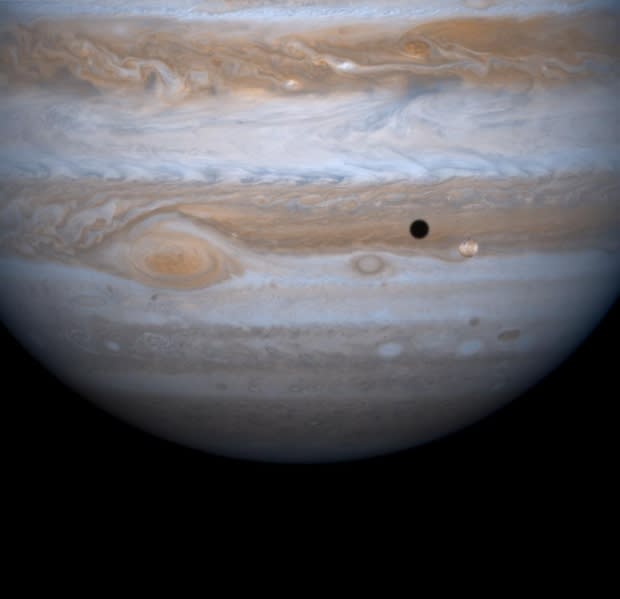Want to help name a moon? You could name 5 of Jupiter's
Last July, astronomers announced they'd found a treasure trove of 12 new moons around Jupiter. Now they're inviting the public to help name five of them.
The discovery was an accident. A team of astronomers was looking for the proposed "Planet X" or "Planet 9," which is believed to lie beyond the orbit of Pluto. Instead, they found a dozen new moons around our solar system's most massive planet, bringing Jupiter's tally to 79 — the most in our solar system.
Among the newly discovered moons is one "oddball," which has already been given the name Valetudo.
Jupiter has different types of moons, including ones that orbit in the same direction as the planet, called prograde moons, and ones that orbit in the opposite direction, known as retrograde moons. (This is important to know when it comes to naming them.)
Valetudo has been declared an "oddball" because it orbits among the retrograde moons — but in a prograde direction.
"It's basically driving down the highway in the wrong direction," Scott Sheppard, an astronomer from the Carnegie Institution for Science who led the team involved in the discovery, said when the moons were announced.

When moons are first discovered, they are typically given alphanumeric designations by the International Astronomical Union.
If you want to take part in helping to name the remaining 11 moons, you're going to have to stick to the following set of rules:
Jupiter moons must be named after characters from Roman or Greek mythology who were either descendants or lovers of the god known as Jupiter (Roman) or Zeus (Greek).
Submissions must be 16 characters or fewer, and preferably one word.
Submissions must not be offensive in any language or to any culture.
Submissions must not be too similar to the existing names of any moons or asteroids.
Names of a purely or principally commercial nature are prohibited.
Names of individuals, places or events that are principally known for political, military or religious activities are not suitable.
Names commemorating living persons are not allowed.
As well, you must consider the orbit of the moons:
S/2003 J5 (Jupiter LVII), S/2003 J15 (Jupiter LVIII) and S/2003 J3 (Jupiter LX) are retrograde moons, and thus the names must end in an "e."
S/2017 J4 (Jupiter LXV) and S/2018 J1 (Jupiter LXXI) are prograde moons, and thus the names must end in an "a."
If you'd like a few suggestions, the video below has some ideas:
Carnegie is asking the public to tweet suggested names to @JupiterLunacy using the hashtag #NameJupitersMoons.
The contest runs from Feb. 21 to April 15.

